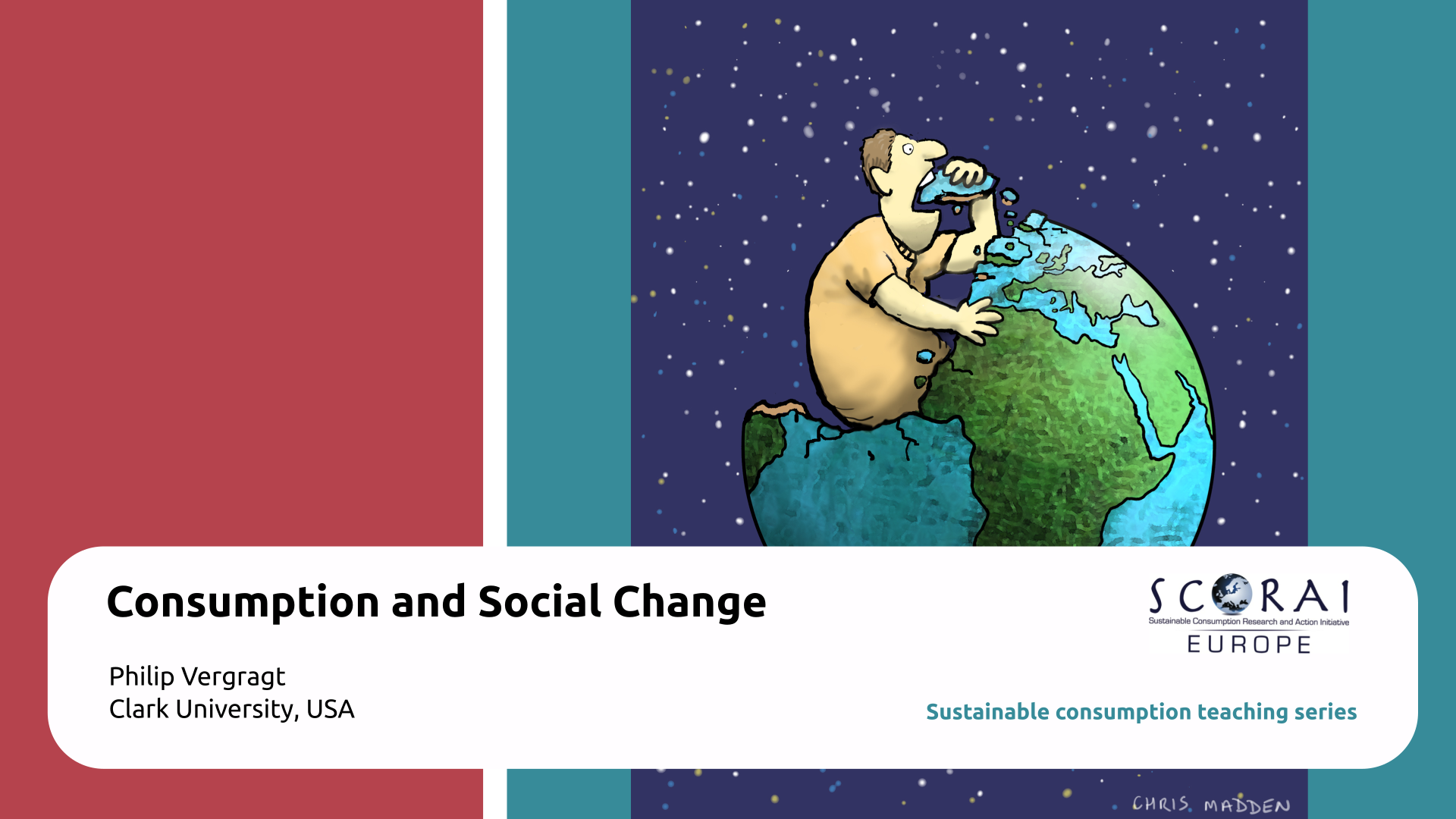By Philip Vergragt, Clark University
Questions to guide discussions
- Much information already exists on consumption in relation to environmental issues and social equity. What else could incentivise social change? What has Polanyi to say about this? Do you agree; or do you see other possibilities?
- Individual choice is often positioned as the main solution towards change, in addition to technical innovations. Why is this not enough? How could individual choices be incentivized? What are the limits to choice, for example for less affluent populations?
- What in your experience would support an effective social movement? What are the impediments? Do you believe the younger generation should and could take the lead? Do you have experience in social action
- What kind of research is further needed to further support social change?
Biography
Philip J Vergragt PhD is an academic and activist; a Fellow at Tellus Institute, Boston; and a Research Professor at Marsh Institute, Clark University, Worcester, MA; he is a Professor Emeritus of Technology Assessment at Delft University of Technology, The Netherlands. He has co-authored more than 80 scientific publications and four books. His main research interests are sustainable technological and social innovations in transportation, energy, and housing; grassroots innovations; socio-technical transitions; sustainable consumption and production; sustainable cities; and technology assessment of emerging technologies. He is a founding Board member of SCORAI, the North American (and European) Sustainable Consumption and Action Initiative. Prof. Vergragt obtained a PhD in Chemistry from the University of Leiden, The Netherlands, in 1976.
Recommended readings
Brown H.S., Vergragt P.J. 2008. Bounded Socio-Technical Experiments as Agents of Systemic Change: The Case of a Zero-Energy Residential Building, Technological Forecasting and Social Change 75, 107-130.
Cohen, M., Brown, H., & Vergragt, P. 2010. Individual consumption and systemic societal transformation: introduction to the special issue. Sustainability: Science, Practice, & Policy 6(2):6-12. http://sspp.proquest.com/archives/vol6iss2/introduction.cohen.html
Cohen, M., H. Brown, and P. Vergragt, eds. 2013. Innovations in Sustainable Consumption: New Economics, Socio-technical Transitions, and Social Practices. Northampton, MA: Edward Elgar.
Vergragt, P.J. (2013) A possible way out of the combined economic-sustainability crisis. Environmental Innovation and Societal Transitions (6)123-125
Vergragt, P., L. Akenji, P. Dewick. 2014. Sustainable Production, Consumption, and Livelihoods: global and regional research perspectives, Journal of Cleaner Production 63, 1-12.
Lorek, S., and P. Vergragt .2014. Sustainable Consumption as systemic challenge: Inter- and transdisciplinary research and research questions, chapter 1 in Lucia Reisch and John Thøgersen (Eds.), Handbook of Research on Sustainable Consumption, p 19-32, Edward Elgar Publishing.
Brown, Halina S., and Philip J Vergragt. 2016. From Consumerism to Wellbeing: toward a cultural transition? Journal of Cleaner Production 132, 308-317. http://dx.doi.org/10.1016/j.jclepro.2015.04.107 .
Vergragt, Philip J, Leonie Dendler, Martin de Jong, Kira Matus. 2016. Transitions to sustainable consumption and production in cities. Introduction to a Special Volume. Journal of Cleaner Production 134A 1-12
Cohen, Maurie J., Halina Szejnwald Brown, and Philp J. Vergragt .2017. Social Change and the Coming of Post-consumer Society: Theoretical Advances and Policy Implications, Routledge, to be published

